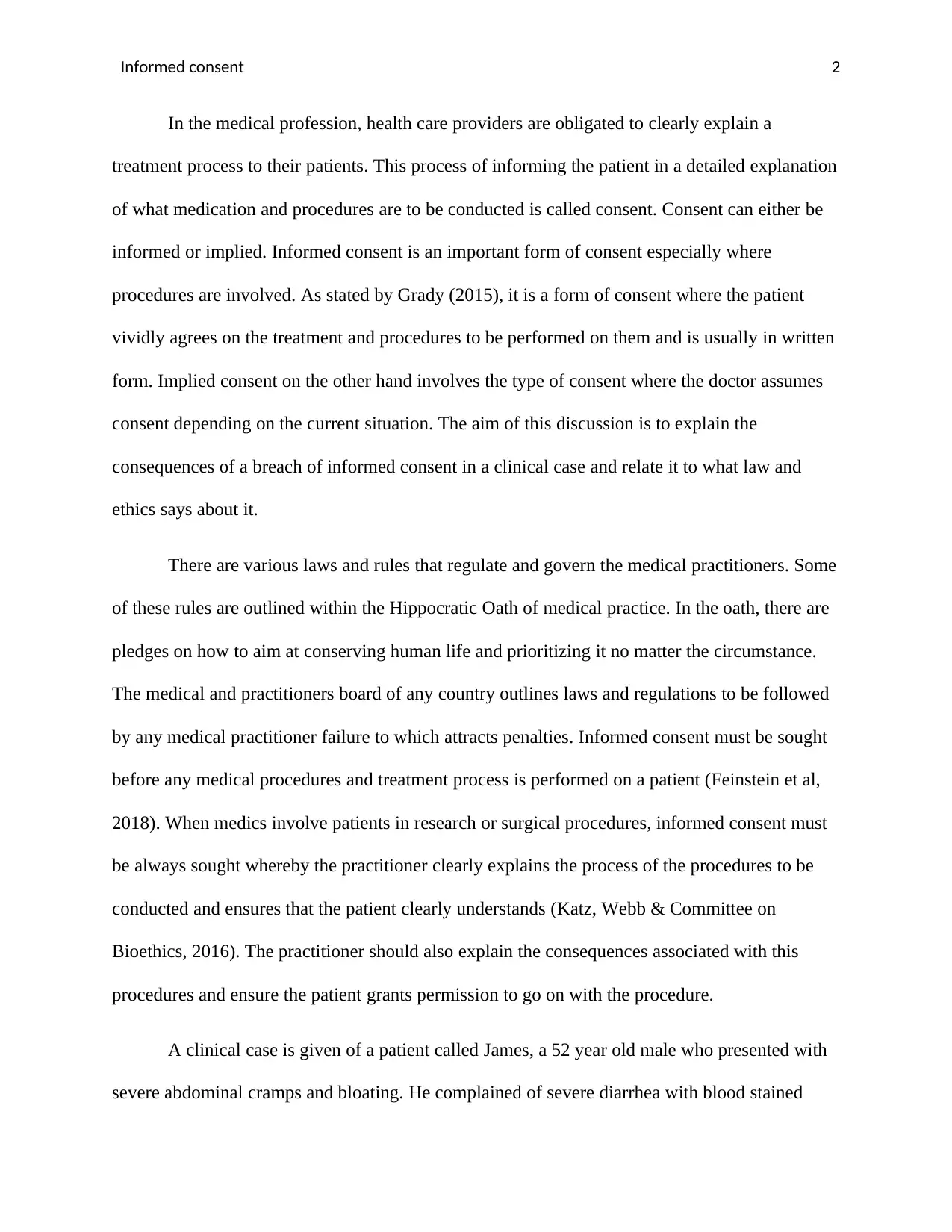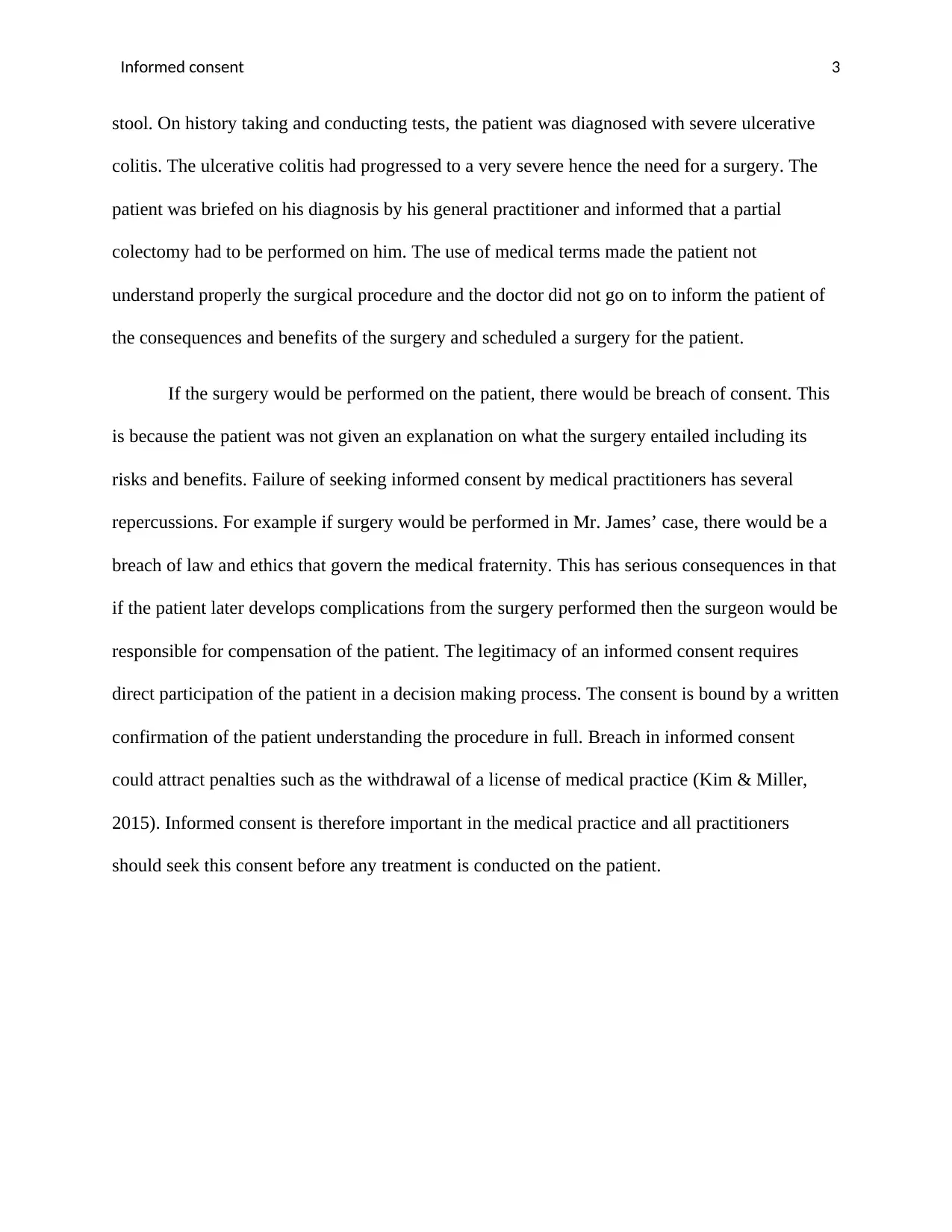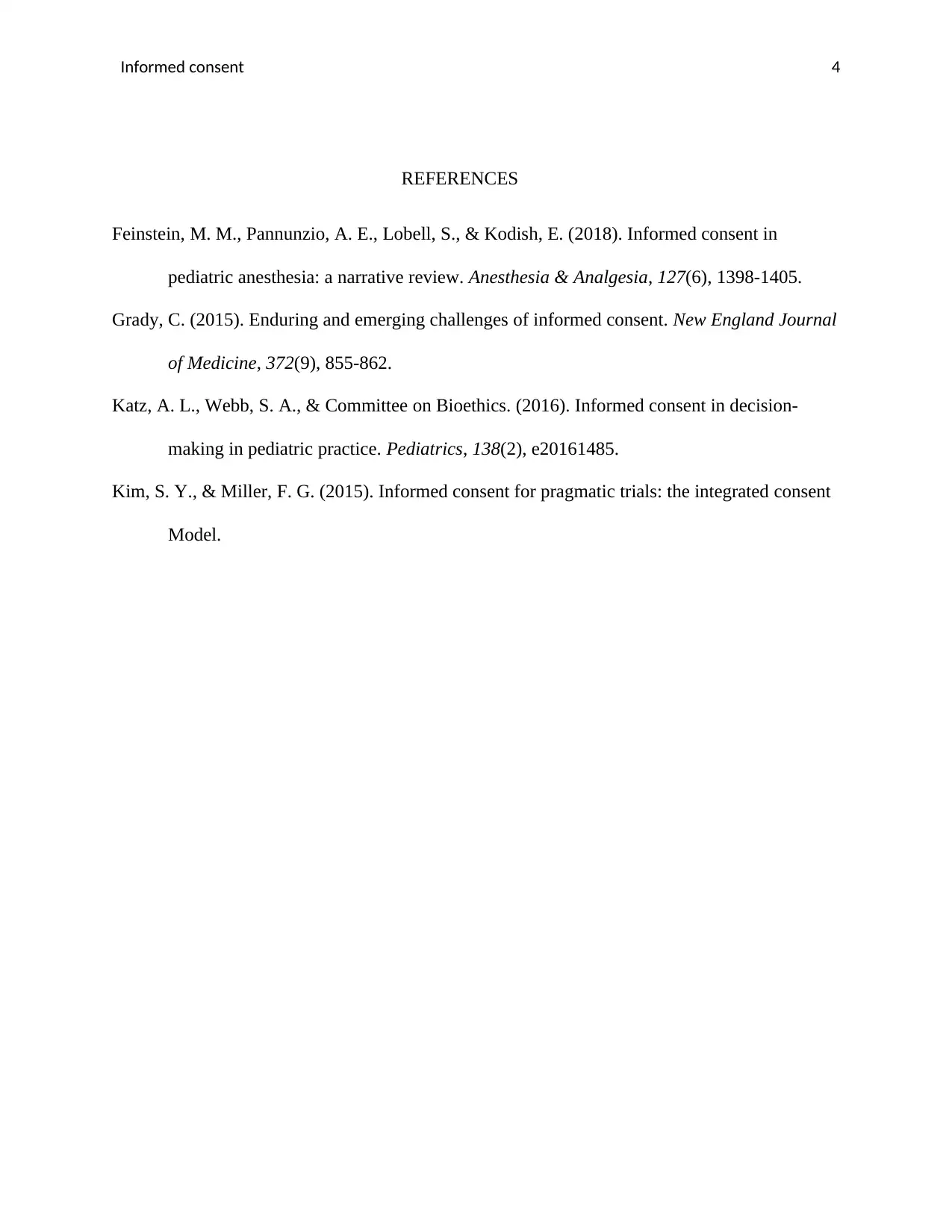Analyzing a Breach of Informed Consent: Legal and Ethical Views
VerifiedAdded on 2023/04/17
|4
|700
|496
Discussion Board Post
AI Summary
This discussion board post delves into the critical concept of informed consent within the medical profession, contrasting it with implied consent and emphasizing its significance in clinical practice. It highlights the legal and ethical frameworks governing medical practitioners, particularly concerning patient involvement in research or surgical procedures. A clinical case involving a patient named James, diagnosed with severe ulcerative colitis, is presented to illustrate a potential breach of informed consent, where the patient was not adequately informed about the surgical procedure's details, risks, and benefits. The post further explores the repercussions of such breaches, including legal liabilities and potential penalties for medical practitioners, such as the withdrawal of their medical practice license. It underscores the necessity of direct patient participation in decision-making and the importance of written confirmation of understanding, referencing relevant studies and ethical guidelines to support its arguments. Desklib provides more solved assignments and past papers for students.
1 out of 4











![[object Object]](/_next/static/media/star-bottom.7253800d.svg)